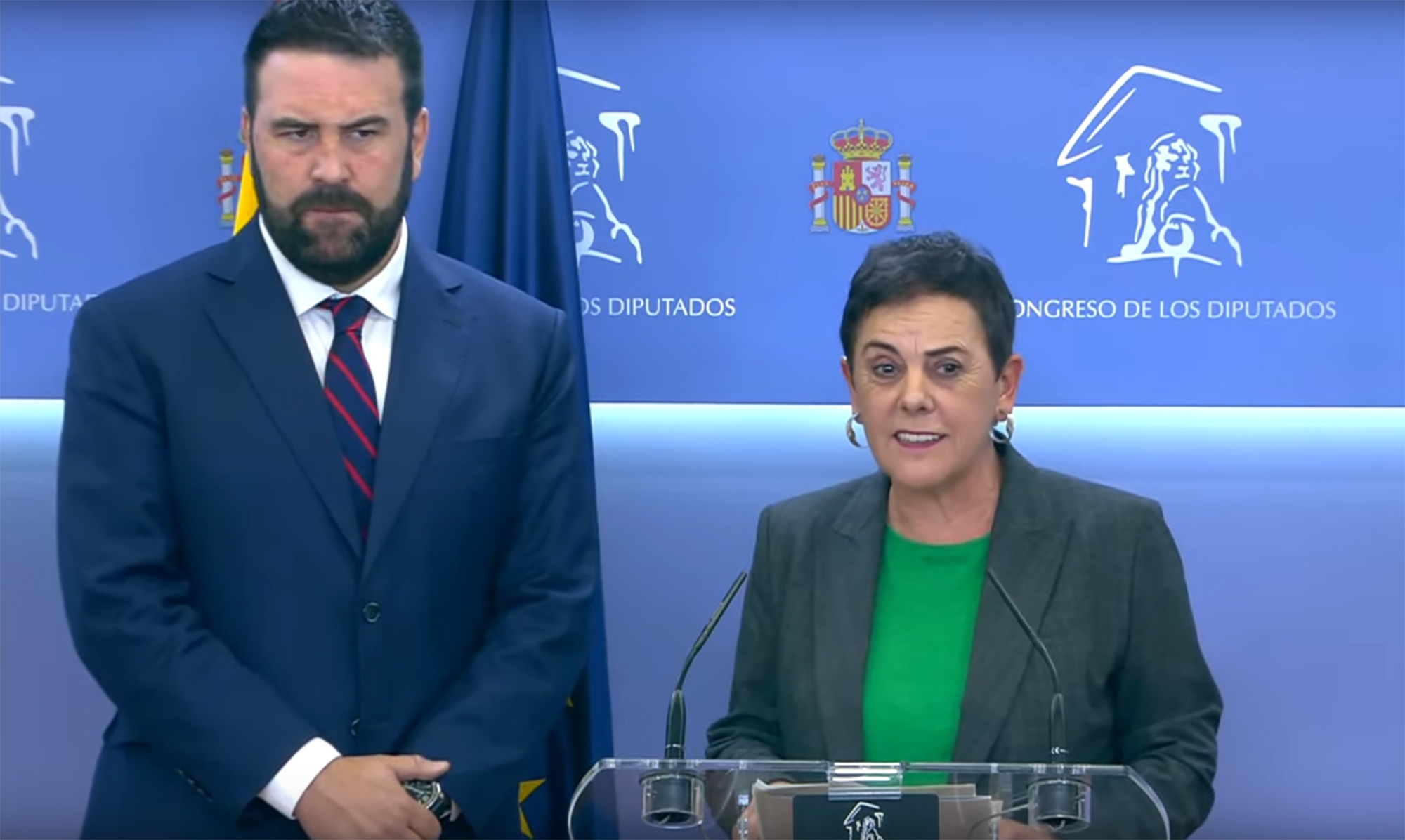
EH Bildu agrees with the Government of Pedro Sánchez to end the Mordaza Law. To this end, they will amend four essential points: the use of rubber balls, disrespect, disobedience and elimination at the border. These changes will be reflected in a report drawn up by the Spanish Parliament's rapporteurs during the previous parliamentary term and will serve as the basis for a new law that is intended to be adopted shortly.

EH Bildu has reached an agreement with the PSOE and Sumar, which make up the Spanish Government, to repeal the Moorish Law and to adopt a new Law on Citizen Security. EH parliamentarians Bildu Mertxe Aizpurua and Jon Iñarritu announced the agreement at a joint press conference.
In particular, there are four points agreed upon. As for the lack of respect, which are the most imposed fines, from now on the complaints must be imposed for "objective reasons", ending with "subjectivity". The conditions for the imposition of disobedience fines are also changed, from severe to mild.
Without rubber balls
On the other hand, the use of rubber balls is replaced by "less harmful materials": "This was one of the main demands of Basque society," Aizpurua explained in an interview at ETB. Finally, it will also conclude with the abolitions at the border and in six months the Aliens Act will be amended.
Aizpurua explained that these points will be added to the report drawn up in the last legislature's report with the aim of adopting a new law repealing the Moorish Act. The text, which will be submitted in the next few hours, has already been made available to all the political groups that have promoted the change of law.
"This achievement is collective and we demand it," Bildu explained from EH. "It's been possible after discreet and rigorous work," explained Jon Iñarritu, who thanked all the groups and associations that have struggled to change the law.
"This achievement is collective and we demand it," Bildu explained from EH. "It's been possible after discreet and rigorous work," explained Jon Iñarritu, who thanked all the groups and associations that have struggled to bring about a change of law.
Controversy law since 2015
The Citizen Security Act came into force in 2015, when the People’s Party had an absolute majority in the Parliament of Spain. Since then, hundreds of thousands of people have been fined in the Spanish State and also in the southern Basque Country, with the help of the National Police, the Civil Guard, the Foral Police and the Ertzaintza, among others.
The law has generated endless reactions and mobilizations against, as it reduces freedoms and chokes with economic fines the activities and demands of associations and groups, establishing control over all citizens.
The law has generated a wide range of positions and mobilizations against, as it reduces freedoms and chokes with economic fines the activities and demands of associations and groups, establishing control over all citizens.
In 2016, the Basque Parliament adopted a declaration rejecting the application of the law, following the votes in favour of PNV, EH Bildu and PSE. However, the Basque Government’s Department of Security has continued to denounce 133 members of ERNAI.
The Parliament of Navarre, for its part, has recently called for the reform of the Mordaza Law because it is "a law that cuts fundamental rights and freedoms". The statement had the votes of PSN, EH Bildu, Geroa Bai and the other matches, together with you.
Previous attempts failed
Since Pedro Sánchez came to power, the Spanish Government has had on the table the decision to repeal the most controversial aspects of the law. In 2023 he took steps to change the law, but not enough to repeal it in practice, so he did not have the support of EH Bildu and ERC, considering the changes to be superficial.